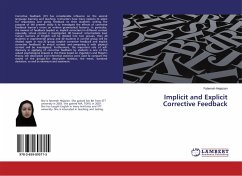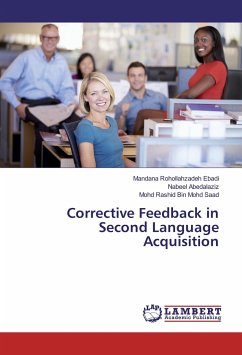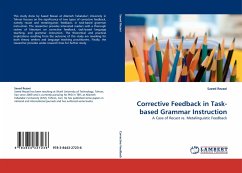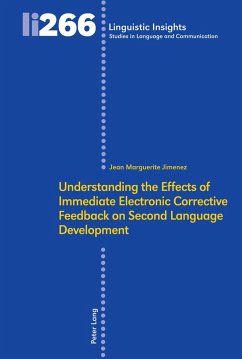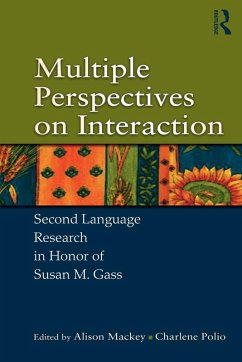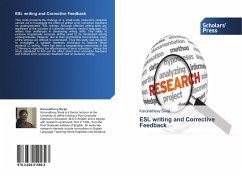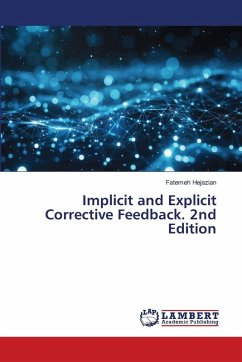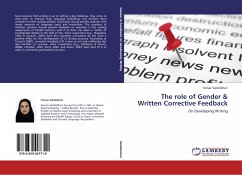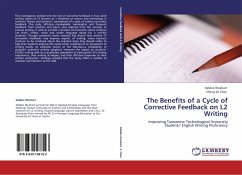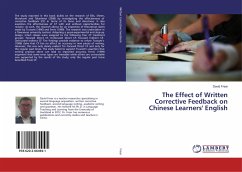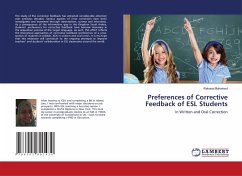
Preferences of Corrective Feedback of ESL Students
In Written and Oral Correction
Versandkostenfrei!
Versandfertig in 6-10 Tagen
36,99 €
inkl. MwSt.

PAYBACK Punkte
18 °P sammeln!
The study of ESL corrective feedback has attracted considerable attention over previous decades. Various aspects of error correction have been investigated and examined through observations, surveys and interviews. As a consequence of the information gap in the Kingdom Saudi Arabia, students' preferences for corrective feedback have become necessary in the acquisition process of the target language. As such, this effort reflects the theoretical approaches of corrective feedback preferences of a cross-section of students in Jeddah, KSA in written and oral errors. It is my hope that this endeavo...
The study of ESL corrective feedback has attracted considerable attention over previous decades. Various aspects of error correction have been investigated and examined through observations, surveys and interviews. As a consequence of the information gap in the Kingdom Saudi Arabia, students' preferences for corrective feedback have become necessary in the acquisition process of the target language. As such, this effort reflects the theoretical approaches of corrective feedback preferences of a cross-section of students in Jeddah, KSA in written and oral errors. It is my hope that this endeavor will contribute to the ongoing attempts to improve teachers' and students' collaboration in ESL classrooms around the world.



